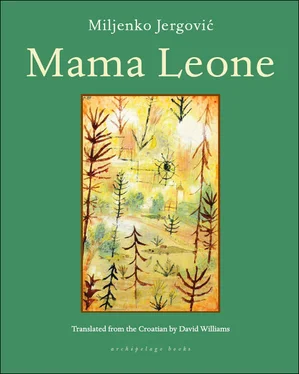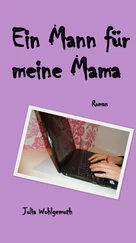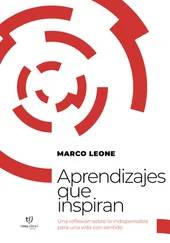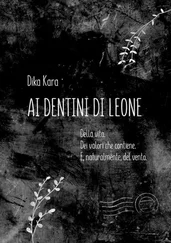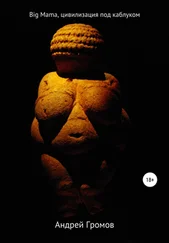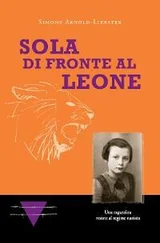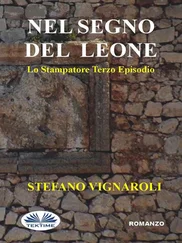The fat secretary came in squawking silence over there! The Russian precipitation cleared, and the director and assistants took their places. Number 675 , said the assistant on the left. The little Romanian jumped up and finally closed his mouth. Where are you from? the assistant asked. From Albania , replied the little Romanian, who, no shit, wasn’t even Romanian. From Albania , the three of them were surprised, Vukota too. They’ve got Jews in Albania nowadays? It didn’t matter anyhow, the kid didn’t know the first thing about singing and ten seconds later the director had cut him off and the secretary showed him the door, soft-soaping him with we’ll call you if we need you .
It was Vukota’s turn. Bosnia and Herzegovina , he replied to the assistant on the left. Take it away , the secretary squawked. Not thinking too much about it Vukota started singing the first folk song that popped into his head. Look at me, Anadolka, I offer my heart, with almonds that you may smell so sweet, with sherbet that you may long for me , he looked in her direction, she looked back, gripping her chair, oh my, your locks so red aglow, do they fill you with such sorrow so , she kept watching him, her eyes shining as if someone had mistakenly let the ocean into the room, were I to suffer such sorrow so, I’d never let you see such woe , Christ, she knows the song, she’s opening her mouth like she’s singing, but so that no one else sees her, so they think she’s just yawning a bit, it’s easy to hide words, every word can be hidden, remain unspoken, but when you sing — that’s hard to hide. . Oh my, your face so white, is it sorrow or is it fright , no, it’s not possible, he would’ve seen her, he would’ve seen her in Sarajevo, but he hadn’t seen her, no way, the ocean flowed from her eyes and rushed down her face and over the whole room, it washed over Vukota and everyone else, but they didn’t notice, they didn’t have the eyes to see, they didn’t know what it meant when an ocean gushed over deserts of dust and thick foreign tongues. Enough , said the director, Vukota wanted to sit down, no, you’re done, someone will call you tomorrow, you’re through , the fat secretary signaled toward the door. Vukota turned around, wanted to say something, but what could he say now he was on his way?
Hello , he looked at her for the last time. Hello , she said quietly in their language, but so that Vukota didn’t hear her voice. He wanted to turn around just once more, to tell her we don’t have time to talk, we gotta get out of here right now , but he didn’t turn around, and he didn’t say anything, because if a man were so quick as to in every moment do what he knows he must, he would never have left, nor would he have anywhere to return. There were still a dozen or so guys and girls in the waiting room. Vukota leaned against the wall. Russian numbers 677 and 679 were quickly out the door. The fat secretary called the next group in, but the girl didn’t appear. Vukota kept waiting anyway; he waited until the last group came out, and then worked it out that for some reason the girl had gone out the back door, the one for the directors and the secretary.
He went back to the apartment, it was hot, definitely way hotter than it could ever have been in Sarajevo. Time dragged by so slowly, much slower than his footsteps. Vukota roamed Tel Aviv like in those pictures where there’s no one except a kid rolling a steel wheel between high buildings where nobody lives. Maybe the streets were in fact full of people, and he didn’t notice, because she, who he believed was of his tribe and thus his destiny, she’d gone out the wrong door, the one that led out to the other end of the world, out into a reality Vukota would never set foot in.
He was nineteen when he came home from soccer one Sunday; his mother put her hand to his forehead, Nešo, you’re sick , she said. He put his pajamas on and lay down, from the bathroom he heard the gurgle of water; his mother was cleaning his soccer cleats; he closed his eyes, fell asleep, and dreamed hot feverish dreams.
The doctor came the next day, the fever hadn’t gone down, he listened to Nešo’s heart and looked him long in the eye. I don’t know , he said, we’re going to have to run some tests . Later his mother brought him some chicken soup. The soup had the taste of illness; Nešo will remember it, and more than anything else the soup will remind him of 1967, the year he was supposed to have died. Its comforting mild taste will irritate him and sometimes induce rage; how is one to understand healthy people eating chicken soup, eyeing each other empathetically, like they belong to a society of local pedophiles who meet once a week around a pot of dead naked birds, all gleaming white.
The waiting room at the clinic was full. Nešo and his father got the only two free chairs left. It was to be the last stroke of luck for the next six months. Everything that happened next would be a long mute nightmare.
The nurse came by and gathered the health-insurance booklets. Hours went by, Nešo closed his eyes and dozed; every now and then he fell forward in his sleep, his father catching his shoulders. I’m not in any pain , he told the doctor, who sat behind a big black desk. Sit yourself down , the nurse came over, the bed covered in a green rubber sheet; she set a rubber tape around Nešo’s upper arm and tapped him on the veins with two fingers; everything looked like it was made out of rubber, the doctor not getting up from his chair; the jab was unpleasant, dark blood flowed, Nešo took a look and his head began to spin, he thought he was going to tip over onto his back and the needle stay sticking in his veins.
The results weren’t ready for another three days. His temperature stayed up around 100.4 degrees. His father went to collect the results and returned ashen-faced. Everything’s fine , he said to Nešo. That night his father and mother sat in the kitchen, smoking in silence until the morning. The results showed their son had leukemia and only a few months to live.
For days he looked at his ashen father and his mother’s swollen eyes. Am I dying here? he asked the doctor. You don’t die when you’re nineteen , he lied. Once a week the nurse came and took Nešo’s blood. Now he would look at the ceiling. He had learned his lesson. Accustomed to his sickness and the muddle in his head lasting the whole day through, his temperature never below 99.5, already he had a score of experience. Nature has seen to it that those suffering from serious illness have no fear of death, he thought, believing that when the moment came he would greet it with serene indifference.
And then, after three months, the fever disappeared. He still felt weak, and his blood count was catastrophic, but his mind had completely cleared, his appetite had returned, and with it all those human fears, not least the fear of death. His father’s face retained its ashen hue, but his mother had stopped crying, the red gone from her eyes. To her, that Nešo’s temperature had dropped was more important and far stronger than the word leukemia. She thought that sometimes you shouldn’t put too much stock in obvious truths, results, and diagnoses, it was better to just outrun them, behave like everything was normal and everyone happy, and then at a given moment everything would indeed be normal again, and besides, happiness comes of its own accord, when no one expects it but everyone is ready to welcome it with open hearts.
When the weakness began to recede from his muscles and bones, Nešo got up out of bed. Is he allowed to walk , his father asked the doctor. He can if he’s able . It was another Sunday, now in the early spring, when Nešo left the house for the first time. The news about his leukemia had spread all over town, everyone knew he was going to die; friends smiled at him overenthusiastically, their girlfriends hugging him, hugs that made their skin crawl, as if their hugs were comforting death itself. Nešo sat down on a bench and watched the match with the girls. In a few weeks you’ll be playing too , he heard them say. They were lying, and he felt like a fraud. It was a feeling he would never forget and that would haunt him for the rest of his life. He knew he wasn’t going to die, but he couldn’t tell anyone. They knew he was going to die, but they couldn’t tell him. They could only sit there in silence, smiling at each other, people on different sides of the same wall: them, beauties in a sun-baked city, and him, a dead man walking, whom you hung out with out of a particular sense of social obligation. Not knowing it, they tried to buy their own deaths from Nešo.
Читать дальше
